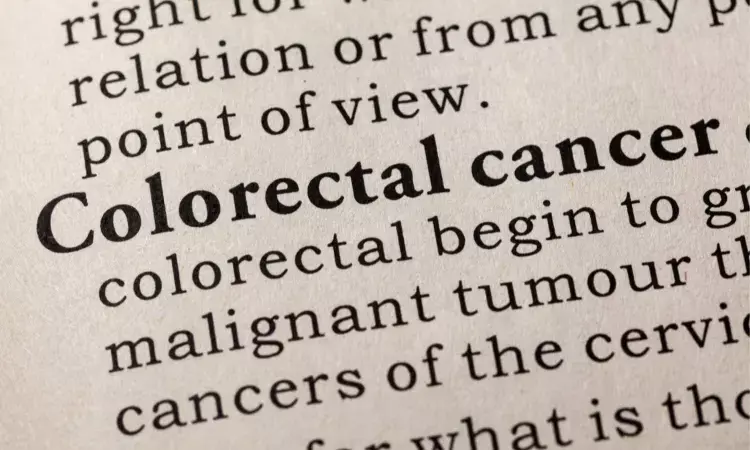- Home
- Medical news & Guidelines
- Anesthesiology
- Cardiology and CTVS
- Critical Care
- Dentistry
- Dermatology
- Diabetes and Endocrinology
- ENT
- Gastroenterology
- Medicine
- Nephrology
- Neurology
- Obstretics-Gynaecology
- Oncology
- Ophthalmology
- Orthopaedics
- Pediatrics-Neonatology
- Psychiatry
- Pulmonology
- Radiology
- Surgery
- Urology
- Laboratory Medicine
- Diet
- Nursing
- Paramedical
- Physiotherapy
- Health news
- Fact Check
- Bone Health Fact Check
- Brain Health Fact Check
- Cancer Related Fact Check
- Child Care Fact Check
- Dental and oral health fact check
- Diabetes and metabolic health fact check
- Diet and Nutrition Fact Check
- Eye and ENT Care Fact Check
- Fitness fact check
- Gut health fact check
- Heart health fact check
- Kidney health fact check
- Medical education fact check
- Men's health fact check
- Respiratory fact check
- Skin and hair care fact check
- Vaccine and Immunization fact check
- Women's health fact check
- AYUSH
- State News
- Andaman and Nicobar Islands
- Andhra Pradesh
- Arunachal Pradesh
- Assam
- Bihar
- Chandigarh
- Chattisgarh
- Dadra and Nagar Haveli
- Daman and Diu
- Delhi
- Goa
- Gujarat
- Haryana
- Himachal Pradesh
- Jammu & Kashmir
- Jharkhand
- Karnataka
- Kerala
- Ladakh
- Lakshadweep
- Madhya Pradesh
- Maharashtra
- Manipur
- Meghalaya
- Mizoram
- Nagaland
- Odisha
- Puducherry
- Punjab
- Rajasthan
- Sikkim
- Tamil Nadu
- Telangana
- Tripura
- Uttar Pradesh
- Uttrakhand
- West Bengal
- Medical Education
- Industry
Alcohol and white bread increase the risk of colorectal cancer: Study

A recent study published in the journal of Nutrients delving into the labyrinth of colorectal cancer (CRC), both genetic predisposition and dietary habits have emerged as pivotal players in the intricate puzzle of the disease. The study, conducted in the extensive UK Biobank, scrutinized the association between 139 different foods and nutrients and CRC risk among a cohort of 118,210 participants.
A total of 1466 incidents of CRC were identified over a mean follow-up period of 12.8 years. The study found some unexpected connections between dietary choices and CRC risk. Notably, higher alcohol consumption and increased intake of white bread were associated with elevated CRC risk, with hazard ratios of 1.08 and 1.10, respectively. These finding emphasize the importance of considering dietary factors in CRC prevention.
Also, the research uncovered a protective role played by certain dietary elements. Increased intake of dietary fiber, calcium, magnesium, phosphorus, and manganese were inversely associated with CRC risk, suggesting a potential avenue for dietary modifications in the quest for prevention.
A polygenic risk score (PRS) was created to explore any interplay between genetic susceptibility and dietary factors in CRC risk. Surprisingly, no evidence of a PRS–nutrient interaction relationship was noticed. This emphasizes that while both genetic and dietary factors independently influence CRC risk, their combined impact might not be as straightforward.
This comprehensive research not only unravels the association between specific foods and CRC risk but also underscores the need for a nuanced understanding of how genetic predisposition and lifestyle choices intersect in the realm of colorectal cancer. The findings mandate continued research and public awareness to tailor preventive strategies that encompass both genetic and dietary aspects in the fight against CRC.
Source:
Jin, D., Lu, Y., Wu, W., Jiang, F., Li, Z., Xu, L., Zhang, R., Li, X., & Chen, D. (2023). Diet-Wide Association, Genetic Susceptibility and Colorectal Cancer Risk: A Prospective Cohort Study. In Nutrients (Vol. 15, Issue 22, p. 4801). MDPI AG. https://doi.org/10.3390/nu15224801
Neuroscience Masters graduate
Jacinthlyn Sylvia, a Neuroscience Master's graduate from Chennai has worked extensively in deciphering the neurobiology of cognition and motor control in aging. She also has spread-out exposure to Neurosurgery from her Bachelor’s. She is currently involved in active Neuro-Oncology research. She is an upcoming neuroscientist with a fiery passion for writing. Her news cover at Medical Dialogues feature recent discoveries and updates from the healthcare and biomedical research fields. She can be reached at editorial@medicaldialogues.in
Dr Kamal Kant Kohli-MBBS, DTCD- a chest specialist with more than 30 years of practice and a flair for writing clinical articles, Dr Kamal Kant Kohli joined Medical Dialogues as a Chief Editor of Medical News. Besides writing articles, as an editor, he proofreads and verifies all the medical content published on Medical Dialogues including those coming from journals, studies,medical conferences,guidelines etc. Email: drkohli@medicaldialogues.in. Contact no. 011-43720751


